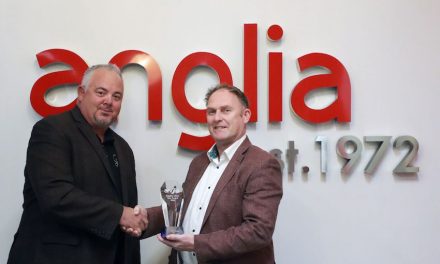The solar farm will create a ‘living lab’ for the Institute to give insight to landowners and operators of solar farms on how best to integrate robotic technology in the field. It will also enable the Institute to become net zero for energy by 2025, generating power for more than 80 per cent of the building’s 600kWh expected daily use.
Siemens’ team supported through consultancy services helping to design, commission and optimise the solar arrays for the robotic technology being used as part of the Institute’s research, in addition to setting up a data collection system for the panels which will underpin research projects at the Institute.
The farm, which spans more than 1,400 square metres, consists of a range of different panel configurations including static ground installations and a sun-tracking array. Some solar panels are also mounted onto the side of the Institute’s building and its rooftop as building-integrated photovoltaics (BIPV) to achieve wide range of installation positions.
It is one of nine projects that are set to improve environmental sustainability, thanks to almost £19 million of funding from UKRPIF.



